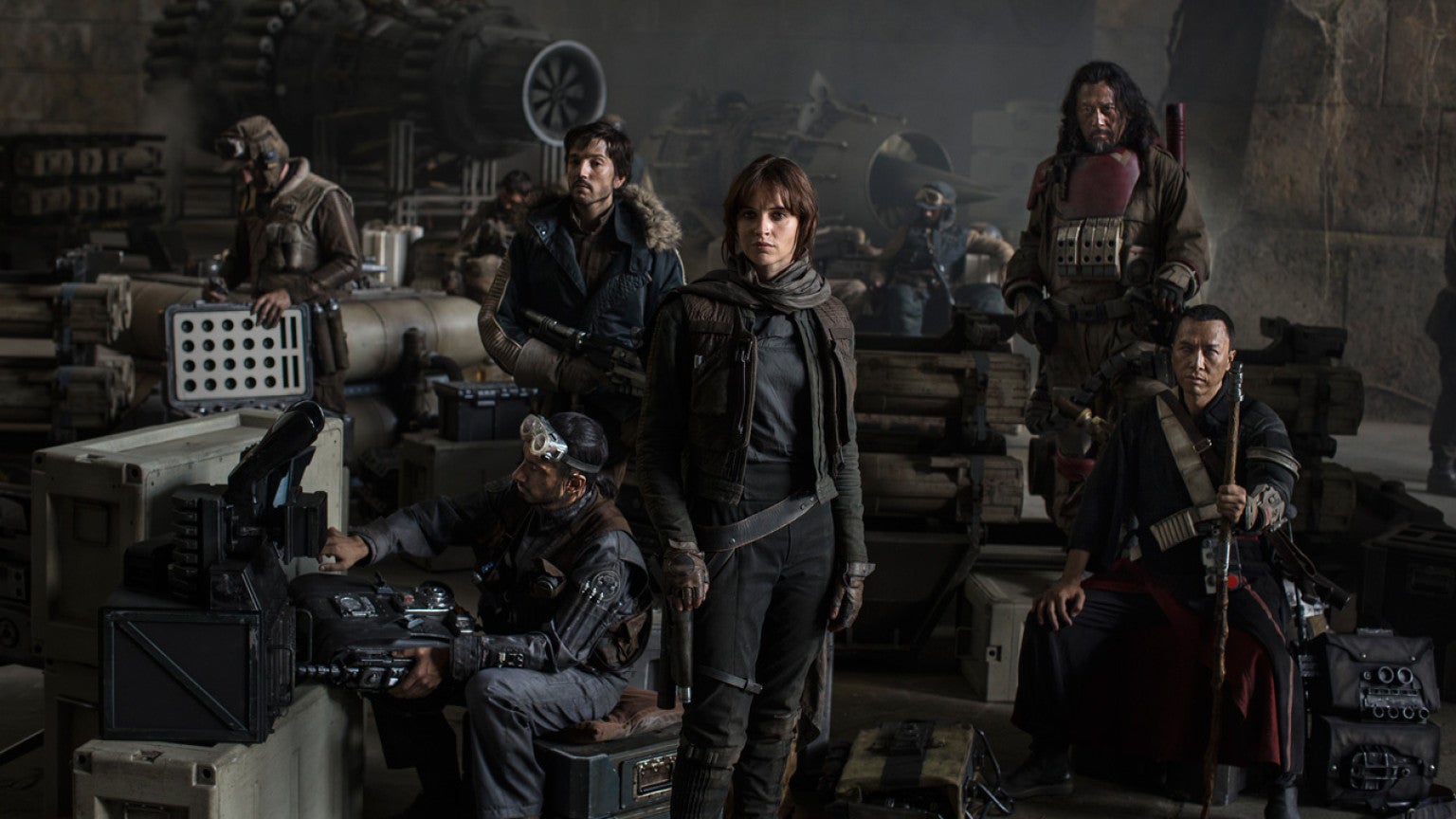Rogue One: Disney CEO insists Star Wars film contains 'no political statements'
'Frankly, this is a film that the world should enjoy. It is not a film that is, in any way, a political film. There are no political statements in it, at all'

Disney's CEO Bob Iger insists the story of a diverse group of oppressed individuals coming together to fight a fascistic empire contains "no political statements".
Yet, with Rogue One mere days away from release, it's difficult not to see the political atmosphere which has increasingly surrounded the film in the past few months. Looking back to early November, Rogue One screenwriters Chris Weitz and Gary Whitta exchanged a number of tweets in connection to Trump's presidential victory.
Weitz expressed that, "the Empire is a white supremacist (human) organisation"; while Whitta added, "opposed by a multi-cultural group led by brave women". The former then posted an image of the Rebel insignia with a safety pin attached to it, which has been increasingly adopted as an expression of solidarity with minority groups who have now been put at risk; adding the line, "Star Wars against hate. Spread it".
Indeed, many Star Wars fans have picked up on the political undertones of the franchise as a form of rallying inspiration to fight against hate; though a small group of Neo-Nazis inevitably attempted to launch a boycott against the film, since it obviously worked so well when MRAs boycotted The Force Awakens (i.e. the second highest-grossing film of all time).
A pro-Trump street artist even subverted several posters for Rogue One to include Trump and cohorts as the heroes of 'Rogue Won', eventhough it was Steve Bannon who actually compared himself to the film's villain Darth Vader.
The Hollywood Reporter asked Iger for a reaction to the boycott to which he responded, "I think the whole story has been overblown and, quite frankly, it's silly. I have no reaction to [this] story at all. Frankly, this is a film that the world should enjoy. It is not a film that is, in any way, a political film. There are no political statements in it, at all."

"[Rogue One] has one of the greatest and most diverse casts of any film we have ever made and we are very proud of that, and that is not a political statement, at all," he added.
Rogue One: A Star Wars Story follows a wayward band of Rebel fighters brought together for one improbable mission: steal the plans for the Death Star. These events, of course, directly link into the first scenes of A New Hope; when Princess Leia is seen concealing the plans in R2-D2 before she's captured by the Galactic Empire.
Directed by Gareth Edwards, the film largely centres around Jyn Erso: a criminal misfit who becomes entangled in the Rebellion's ambitious, and resolutely dangerous, schemes. Donnie Yen, Diego Luna, Jian Wen, Forest Whitaker, Alan Tudyk, and Riz Ahmed also star.
Rogue One: A Star Wars Story will be released in cinemas on 16 December. Here's how to get tickets for the year's most anticipated film.
Join our commenting forum
Join thought-provoking conversations, follow other Independent readers and see their replies
Comments
Bookmark popover
Removed from bookmarks